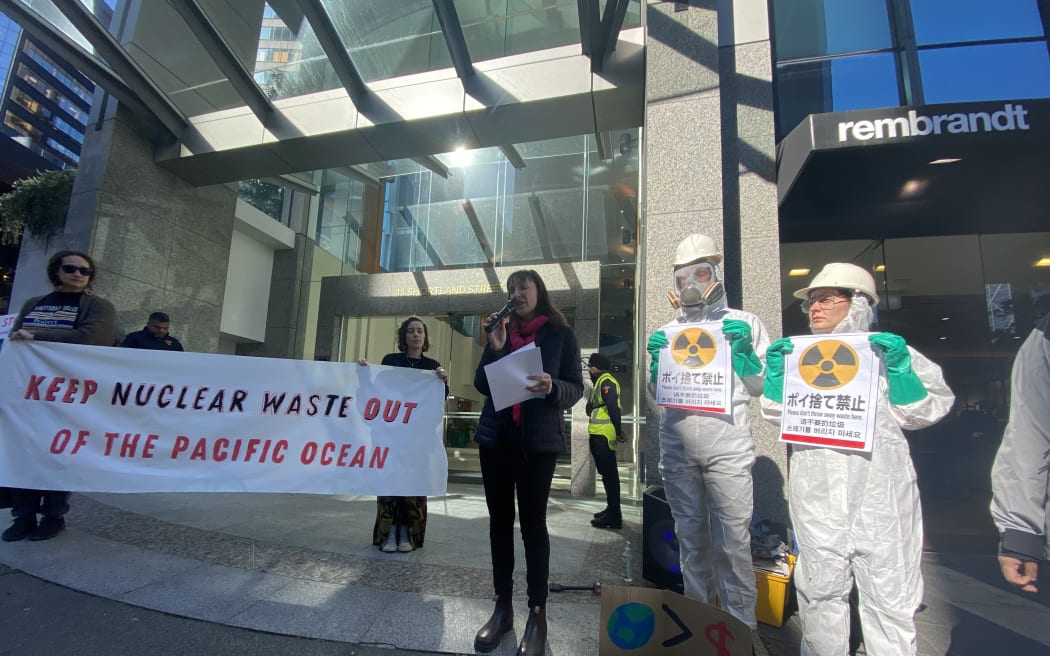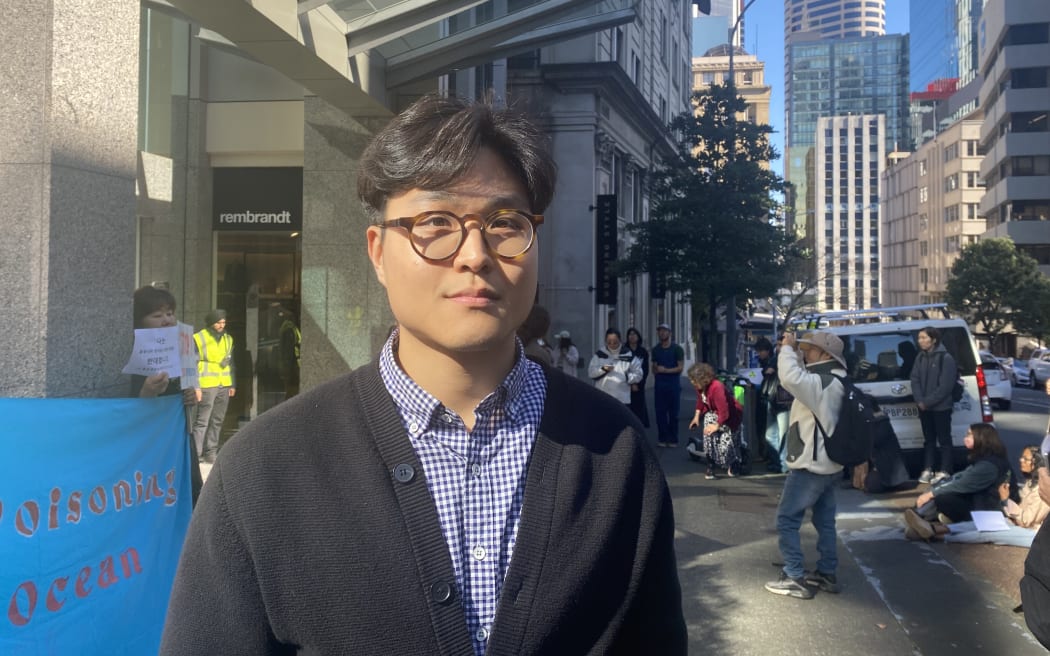By Lydia Lewis
Japan yesterday began the decades-long release of more than one million tonnes of treated nuclear wastewater into the Pacific Ocean in defiance of protests across the region.
Protesters in Auckland decried New Zealand’s “convenient silence” on Japan’s nuclear waste release at a rally.
Among the crowd was a young Pacific advocate who called on the New Zealand government to oppose the release.
- READ MORE: Niue and Tuvalu ‘concerned, dismayed, disappointed’ with Fukushima release
- Other Fukushima reports
“We’re calling for New Zealand to release a statement opposing the dump and then come up with a regional consensus that the leaders’ meeting [Pacific Islands Forum Summit] in November can accept,” said codirector Marco de Jong of Te Kuaka New Zealand Alternative.
At the Auckland protest on Friday morning, de Jong said New Zealand was taking the easy way out.
He said the government’s silence was convenient and left Pacific nations to fight on their own.
“The ocean is suffering, climate change is accelerating. And the Pacific is being rendered as a sacrifice zone, a military buffer and climate disaster area,” de Jong said.
‘Nuclear legacies’
“Things like the nuclear waste dump compound harms. There are nuclear legacies that have not been addressed. And this is part of a broader story.”

Aaron Lee, an Aucklander originally from South Korea, said the issue was causing tension back home.
“It should not be happening,” Lee said.
He said if it really was “clean water” and “clean treated wastewater”, why could not Japan use it in its agricultural lands?
Lee said protesters had been fiercely opposing the release in South Korea.
Auckland University sociology lecturer Dr Karly Burch told the protest: “It’s really important to put it in the context of nuclear imperialism and nuclear colonialism.”
“It involves targeting indigenous peoples and their lands and waters to sustain the nuclear production process,” she said.
Legal thresholds
The International Atomic Energy Agency (IAEA) standards were basically legal thresholds or standards, Dr Burch said.
“So they’re saying up to this amount, it’s legally allowable to pollute, it’s legally allowable to have bodies exposed to a certain amount of ionising radiation.”
“And so it’s really important that when we hear these things, when we hear these approvals, we’re thinking of them in legal terms, because that’s really what this is all about.”
She said the IAEA’s legal standards were “extremely narrow” in their focus.

The IAEA backs it’s standards the UN nuclear watchdog boss told RNZ in July 2023.
Despite assurances, protesters in and around the Pacific Ocean have hit the streets.
In Suva, hundreds of protesters gathered and chanted: “If it’s safe, put it in Japan.”
“Pacific Islands Forum, United Nations, We are the Pacific, We are angry,” protesters chanted.
And at least 16 protesters in Seoul were arrested as they attempted to enter the Japanese embassy.
Lydia Lewis is an RNZ Pacific journalist. This article is republished under a community partnership agreement with RNZ and Asia Pacific Report.
☢️ Fukushima protest march | 25/8/23#fyp #fiji #FukushimaNuclearWasteWater pic.twitter.com/zHvjem9wTD
— fijivillage (@fijivillage) August 24, 2023

